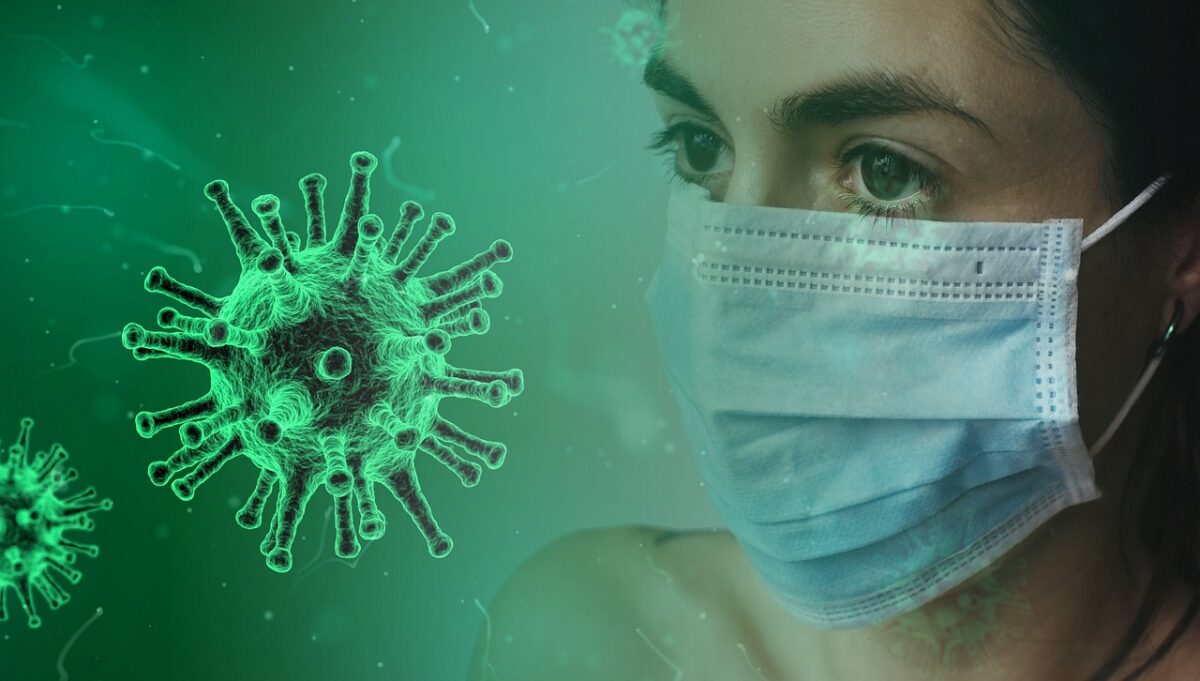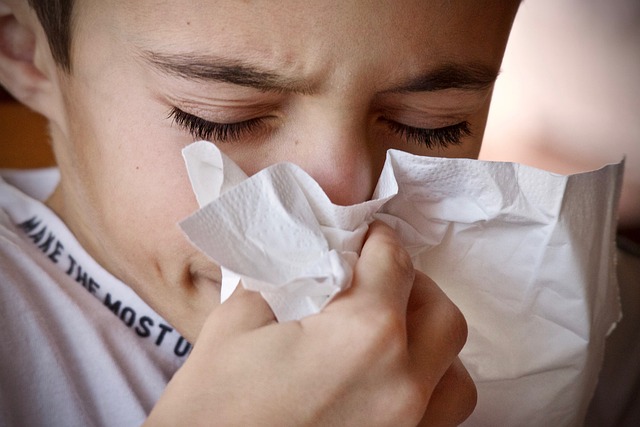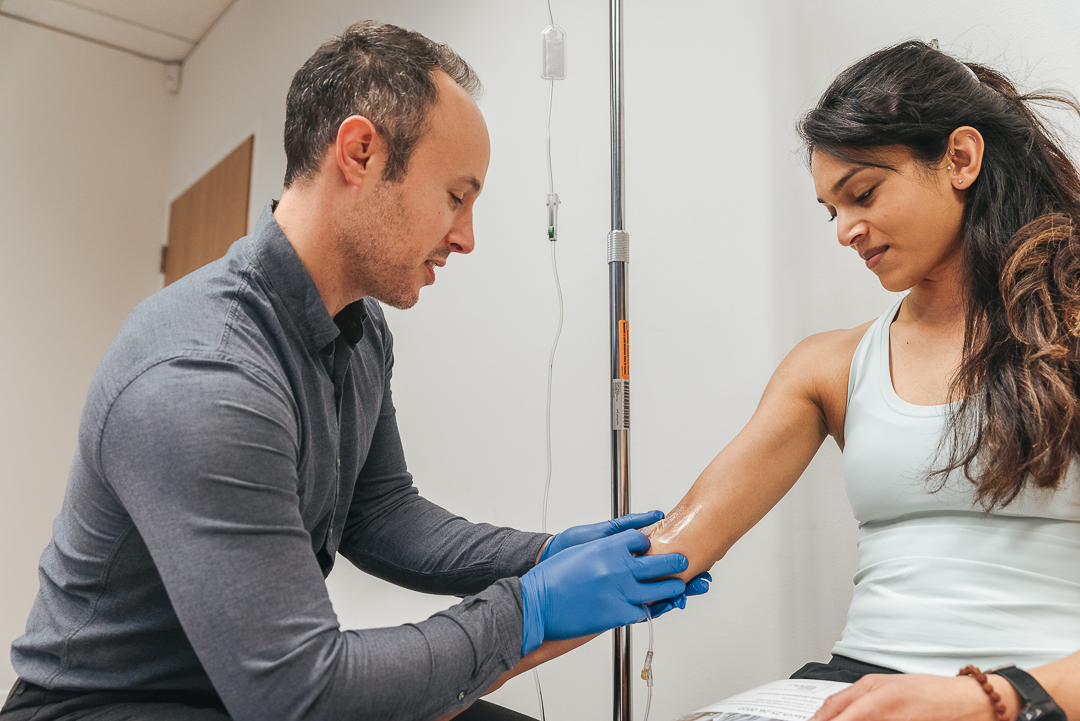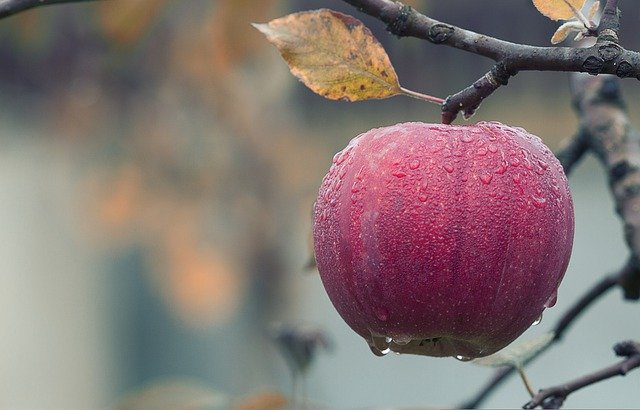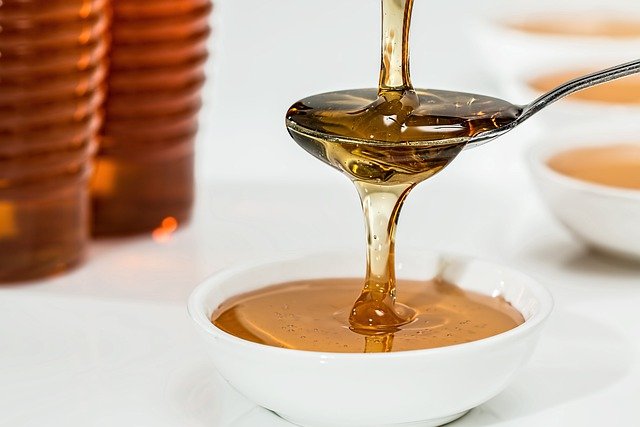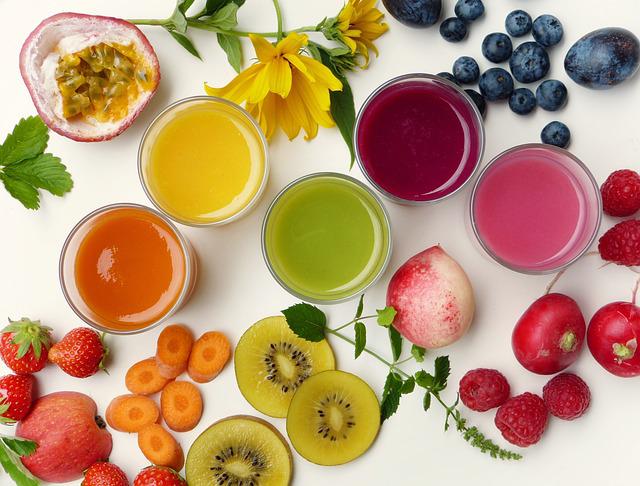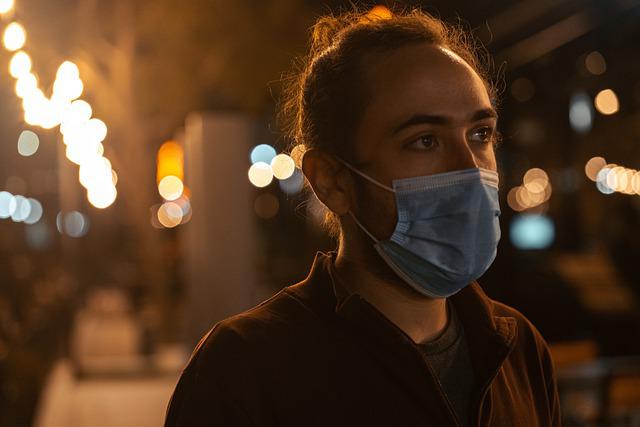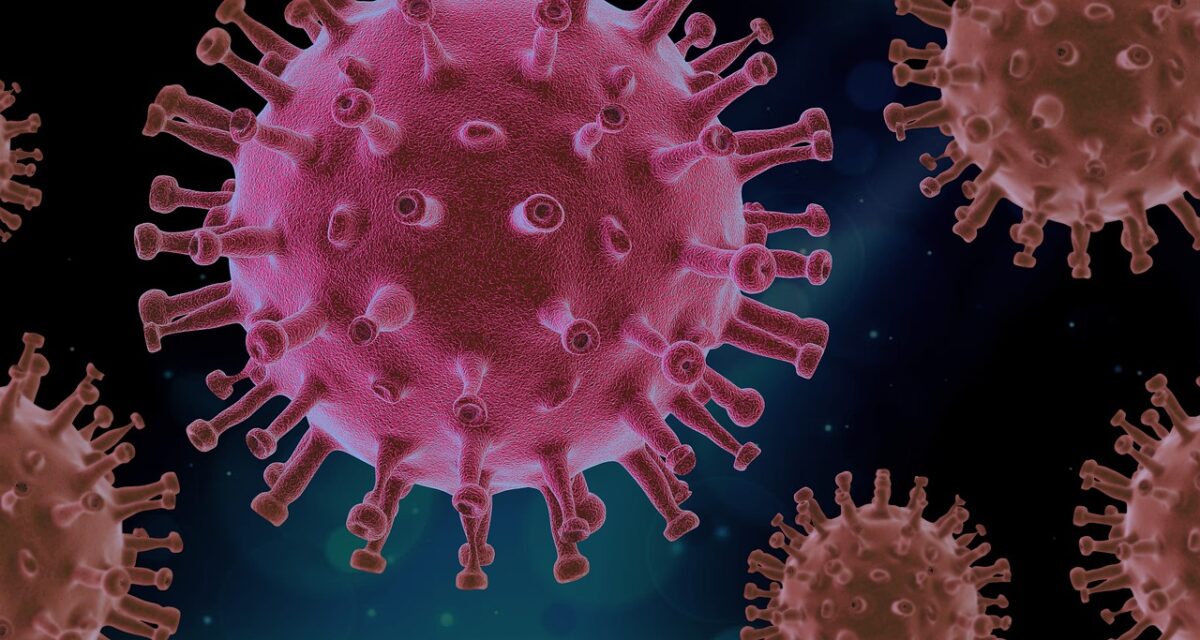You may have seen posts on social media about the benefits of fasting and how it can help improve immunity, but what does the science say? Is there any truth to these claims? Let’s take a closer look.
There are many different types of fasting diets, but the most common are intermittent fasting, alternate-day fasting, prolonged fasting and fast-mimicking. Some people fast for religious reasons, while others do it for health reasons. Let’s now examine some of the different types of fasting protocols.
Intermittent Fasting
Intermittent fasting is a type of fasting diet where you alternate between periods of eating and not eating, usually for a set number of hours each day.
One popular version of this diet is known as the 16:8 fasting to eating ratio, which involves fasting for 16 hours every day and then consuming all of your food during the remaining 8-hour window. This type of fasting has been shown to have several health benefits, including improved insulin sensitivity, fat loss, and increased longevity.
Alternate Day Fasting
Alternate day fasting is a type of fasting diet in which you alternate between periods of eating and not eating. During the fasting period, you typically consume a very low number of calories, usually less than 500 per day. Some people may choose to fast for 24 hours at a time, while others might fast for two days in a row before returning to normal eating patterns.
There are several potential benefits to this type of diet, including weight loss, improved blood sugar control, and increased longevity. However, there are also some potential risks associated with alternate day fasting, such as nutritional deficiencies and difficulty adhering to the diet over the long term.
Prolonged Fasting
Prolonged fasting is an alternative type of fasting diet that is designed to allow the body to enter into a state of ketosis, a metabolic state in which fat becomes the primary energy source instead of carbohydrates.
Unlike other forms of fasting where the specific timeframe for fasting may vary, prolonged fasting typically involves fasting for 3-5 days at a time with periods of normal eating in between. During this time, people may experience side effects like fatigue, lightheadedness, and hunger pangs.
However, proponents of prolonged fasting claim that this type of fast can help promote weight loss by effectively killing off certain cells in the body that are responsible for storing excess fat. Additionally, some research suggests that prolonged fasting may have other health benefits like improved insulin sensitivity and reduction in inflammation.
Fast Mimicking
The fast mimicking diet is a type of fasting diet that involves consuming specific foods and nutrients in order to mimic the effects of fasting. This approach is typically done over the course of 5 days, during which time people consume a low-calorie diet that is high in nutrients such as vitamins, minerals, and healthy fats. The goal of this type of fast is to trigger certain biological changes that are typically seen during periods of fasting, such as increased insulin sensitivity, reduced inflammation, and enhanced cellular repair.
While there haven’t been many large-scale studies examining the health benefits of fast mimicking diets, early research suggests that they may have a variety of positive effects on health and longevity.
Fasting and Immunity
There is some evidence to suggest that fasting can help boost immunity. One study found that intermittent fasting increased the production of white blood cells, which are your body’s first line of defense against infection. Another study found that alternate-day fasting improved markers of inflammation, which is thought to be involved in the development of some chronic diseases. Fasting also promotes a disease modifying process called autophagy.
Autophagy
Autophagy is a cellular process where the body breaks down damaged or unnecessary parts of cells in order to clear out harmful waste products and repair any damage. This process can be triggered by fasting, which has been shown to increase levels of autophagy throughout the body, helping to protect against disease and promote good health.
Studies have found that intermittent fasting can increase levels of certain proteins involved in the regulation of autophagy, while alternate-day fasting has been shown to induce autophagy even more effectively.
Additionally, researchers believe that fasting may help stimulate the production of stem cells, which are able to replace old or damaged cell tissues and potentially contribute to improved healing and recovery.
Overall, there is strong evidence that fasting can trigger autophagy in various ways, which may help boost immunity and prevent the development of chronic diseases.
Fasting Risks
It’s important to note that fasting is not for everyone. If you have a medical condition or are taking medication, please consult with your healthcare provider before starting any type of fasting diet. Fasting can also be dangerous if not done correctly. For example, if you don’t eat enough calories or nutrients, you may experience fatigue, irritability, and difficulty concentrating. You may also be at risk for dehydration if you are not drinking enough fluids.
Conclusion
So, should you start fasting to improve your immunity? Personally, fasting is the first thing I do when I feel a cold or flu coming on. I have found that this practice dramatically reduces symptoms and duration of illness. As you can see there is some research to support fasting as a natural immune system booster. It is important to note that fasting is not for everyone and can be dangerous if not done correctly. If you’re thinking about starting a fasting diet, please consult with your healthcare provider first.
Introduction
You may have seen people getting IV therapy and wondered what it was all about. IV therapy is the administration of vitamins and minerals through an IV, or intravenous, drip. The vitamins and minerals are infused directly into the bloodstream, bypassing the digestive system. This allows for higher absorption of the nutrients than if they were taken orally.
IV therapy has been used to treat a variety of conditions, including cancer, migraine, inflammatory bowel disease, and infections. Proponents of IV therapy claim that it can boost energy levels, improve immunity, and help the body recover from illness and injury more quickly. But does IV therapy really work? Let’s take a closer look.
How Does IV Therapy Work?
IV therapy is thought to work by providing high concentrations of nutrients that can be rapidly absorbed by the body. When these nutrients are infused directly into the bloodstream, they bypass the digestive system, which can sometimes limit absorption when taking oral supplements.
The intravenous route also allows for higher doses of nutrients than would be possible with oral supplementation. For example, when taking a vitamin C supplement orally, only a small percentage of it is actually absorbed by the body. However, when given as an IV infusion, concentrations of vitamin C in the blood can increase to levels that are not achievable through oral supplementation alone.
What Are The Benefits Of IV Therapy?
IV therapy is claimed to offer a number of benefits, including improved immunity, increased energy levels, and faster recovery from illness and injury.
Dehydration
One of the most well-known benefits of IV therapy is its ability to treat or prevent dehydration. When you’re dehydrated, your body doesn’t have enough water to function properly. This can lead to symptoms like fatigue, headache, dry skin, and dizziness.
Dehydration can also cause more serious problems like heat stroke and kidney failure. IV fluids can help rehydrate your body and relieve some of these symptoms.
Migraine
Another common use for IV therapy is to treat migraine headaches. Migraines are a type of headache that is often accompanied by nausea, vomiting, and sensitivity to light and sound. A study published in 2012 found that patients who received magnesium sulfate through an IV had fewer migraines than those who received placebo treatments .
Cancer
IV therapy is also sometimes used as a treatment for cancer . While there is no cure for cancer yet , research has shown that high doses of certain vitamins and minerals may help improve quality of life for cancer patients and even improve survival rates. Vitamin C, for example, has been shown to kill cancer cells in test tubes . It’s also been shown to reduce fatigue, pain, nausea, and vomiting in cancer patients. Other vitamins and minerals that have been studied include selenium, CoQ10, curcumin, B vitamins, and vitamin D . However, more research is needed to confirm whether or not these nutrient infusions are effective treatments for cancer.
Immune Booster
IV therapy can also be used to boost immunity. If you frequently get sick or feel run down, IV therapy can help give your immune system a much-needed boost. Vitamins C and D are both essential for immune health. Vitamin C is a powerful antioxidant that helps protect cells from damage. Vitamin D helps regulate the immune system and has been shown to reduce the risk of respiratory infections.
Are There Any Side Effects?
Most people tolerate IV therapy well and do not experience any side effects. However, some people may experience mild side effects such as bruising or soreness at the injection site. more serious side effects are rare but could include allergic reactions or blood clots.
Conclusion
If you’re considering trying IV therapy, it’s important to speak with your doctor first. IV therapy is not without risks; for example, it can lead to dehydration or an infection if not done properly. That being said, there is some promising research to suggest that IV therapy may be an effective treatment option for certain conditions. If you and your doctor decide that IV therapy is right for you, be sure to choose a reputable provider like myself who has experience administering treatments.
Introduction:
As a parent, you want what’s best for your child. You want them to be happy and healthy, and you’ll do whatever it takes to make that happen. But sometimes, figuring out “what’s best” can be tricky.
Take food sensitivity testing for kids, for example. You may have heard that it’s something you should do, but you may not be sure why or how. Don’t worry – I’m here to help! In this blog post, I’ll answer all of your questions about food sensitivity testing for kids so that you can make an informed decision about whether or not it’s right for your family.
What is food sensitivity testing?
Food sensitivity testing is a way to determine if your child is sensitive or allergic to certain foods. It’s important to note the difference between a sensitivity and an allergy – a food allergy is an immune system reaction that can occur after eating even a small amount of the offending food, and it can be life-threatening. A food sensitivity is less severe, but can still cause uncomfortable symptoms like nausea, stomach pain, diarrhea, eczema and headaches. If your child has any of these symptoms after eating certain foods, they may have a sensitivity to those foods.
Why is food sensitivity testing important?
If your child is sensitive to certain foods, it’s important to avoid those foods for a period of 12 weeks so that their immune system can clear the problematic antibodies Sometimes, even small amounts of the offending food can trigger symptoms. By identifying which foods your child is sensitive to, you can help them avoid those foods, feel their best, reset the immune system and perhaps reintroduce those foods in the future.
How is food sensitivity testing done?
There are several ways to test for sensitivities to specific foods. The most common method is a blood test. Your naturopathic doctor can give you a requisition for food sensitivity testing at your local lab. A small amount of blood is taken from either a vein or finger tip. This blood sample is sent for testing to detect IgG antibodies associated with particular foods. When the result is ready foods will either be identified as normal, borderline or elevated. At this point your Naturopathic Doctor will be able to recommend a dietary protocol to help reduce the antibodies. If there is an unusual amount of sensitivities, this can be a sign of Leaky Gut Syndrome.
Leaky Gut Syndrome
Leaky gut syndrome is a condition that can be caused by food sensitivities. It occurs when the lining of the intestines becomes damaged, allowing bacteria, food particles and toxins to leak into the bloodstream. This can lead to a wide range of symptoms, including fatigue, joint pain, skin problems, and digestive issues.
Treatment typically focuses on removing trigger foods from the diet and healing the gut lining with supplements and probiotics. In some cases, leaky gut syndrome can resolve on its own with time and supportive care.
Conclusion:
If you’re wondering whether or not your child should get food sensitivity testing done, we hope this blog post has helped clear things up for you! Testing can be a helpful way to identify which foods your child should avoid in order to feel their best every day. If you have any further questions about food sensitivities or allergies, don’t hesitate to reach out to me. I’ll be more than happy to help!
Introduction:
October means apple season is in full swing. And while apples are delicious and a great source of fiber, they also have some surprising health benefits. Here are 5 reasons to make sure you include apples in your diet this fall.
1. Apples Can Boost Your Immunity
One of the essential components of a strong immune system is vitamin C, and apples are packed with it. Just one small apple contains approximately 10% of your daily recommended intake of vitamin C. Vitamin C is a powerful antioxidant that helps protect your cells from damage and supports a healthy immune system.
Apples are also a good source of vitamin A, which is important for a strong immune system. Vitamin A helps the body’s natural defenses against infection and disease. It also helps to keep the skin and mucous membranes healthy. The body needs vitamin A to form white blood cells, which help to fight infection. Vitamin A is found in both the skin and the flesh of apples, so eating a whole apple is the best way to get the benefits.
In addition, apples contain polyphenols, which are plant-based compounds that have been shown to boost immunity.
Apples contain a type of polyphenol called quercetin. Quercetin is a plant-based compound that has been shown to provide a number of health benefits, including boosting the immune system. One study found that quercetin supplements were able to increase the production of infection-fighting cells in the body. Another study found that quercetin supplements were able to reduce the severity and duration of cold symptoms. Polyphenols like quercetin are just one of the many reasons why apples are often referred to as a “superfood.”
2. Apples Can Help Reduce the Risk of Diabetes
Type 2 diabetes is a serious and growing health concern, with over 29 million Americans affected by the disease. Eating apples has been linked with a lower risk of type 2 diabetes. This is likely due to the fact that apples contain pectin. Pectin helps to slow the digestion and absorption of carbohydrates, which helps to keep blood sugar levels stable. Additionally, apples are a good source of antioxidants, which can help improve insulin sensitivity.
3. Apples May Help Lower Cholesterol Levels
One large apple contains about 4 grams of fiber, half of which is pectin. Pectin has been shown to reduce cholesterol levels by binding to cholesterol molecules and removing them from the body before they can be absorbed into the bloodstream.
Research has supported the notion that apples can help reduce cholesterol levels. One study showed that eating two apples a day for four weeks resulted in a seven percent reduction in bad cholesterol and a five percent increase in good cholesterol. Another study found that women who ate an apple a day had lower cholesterol levels and a decreased risk of heart disease. The antioxidants and fiber in apples are thought to be responsible for these benefits.
4. Apples Can Help Keep Your Heart Healthy
In addition to reducing cholesterol levels, apples can also help keep your heart healthy by preventing plaque build-up in your arteries. This is thanks to the antioxidants found in apples, which help keep your arteries clear and prevent inflammation. One study published in the “European Journal of Nutrition” showed that eating apples every day for four weeks can reduce bad cholesterol levels by up to 10 percent.
5. Apples Can Aid in Weight Loss
Because they’re high in fiber and water, apples can help you feel fuller longer and prevent overeating throughout the day. 
Research indicates that apples may play a role in weight loss. One study showed that obese women who ate an apple before lunch felt more satiated and ate fewer calories than those who didn’t have an apple. Another study found that eating an apple at least three times per day helped participants lose weight and body fat. This may be due to the high fiber and water content of apples, which can help you feel fuller longer and prevent overeating. Additionally, apples are a low calorie food, providing just 95 calories per medium-sized apple. They’re also a good source of energy-boosting phosphorus.
Conclusion:
The next time you’re at the grocery store, be sure to pick up a few extra apples. Not only are they delicious and nutritious, but they also have some impressive health benefits. Apples can boost your immune system, lower your cholesterol levels, and even help you live longer. So stock up while they’re in season and enjoy all the benefits this versatile fruit has to offer.
Introduction
Manuka honey is a type of monofloral honey that is derived from the nectar of the manuka tree. This honey has been used for centuries for its medicinal properties. In recent years, it has become increasingly popular as a natural remedy for a wide variety of ailments. But with so many different types and brands of Manuka honey on the market, how do you know which one to choose?
MGO and K Factor
When it comes to choosing the best Manuka honey, there are a few things you need to keep in mind. First, you need to make sure that you are buying pure Manuka honey. This means that the honey should be sourced from bees that have only collected nectar from the manuka tree. Second, you need to look for a brand that clearly labels the methylglyoxal (MGO) content of their honey. MGO is a compound found in Manuka honey that is responsible for its antibacterial properties. The higher the MGO content, the more potent the antibacterial effects will be.
MGO is not the only compound responsible for the antibacterial properties of Manuka honey. The K factor and UMF rating is another measure of the potency of Manuka honey that takes into account the total number of methylglyoxal molecules in a given sample of honey. The higher the K factor or UMF, the more potent the antibacterial effects will be.
Type of application
Finally, you need to decide what type of Manuka honey you want. There are three main types of Manuka honey: Active, medical-grade, and cosmetic-grade. Active Manuka honey is typically used topically to treat wounds or skin infections. Medical-grade Manuka honey is sterile and can be used directly on open wounds. Cosmetic-grade Manuka honey is suitable for use in skincare products and can be used to help improve skin texture and tone.
What to use it for?
There are a number of different conditions that Manuka honey can be used to treat. Some of the most common include:
-Infections:
Manuka honey has natural antibacterial and antifungal properties that make it effective against a variety of infections. It can be used to treat everything from minor skin infections to more serious illnesses like pneumonia.
-H.Pylori:
Manuka honey has been shown to be effective against H.Pylori infection and gastric ulcers. A study published in the journal “BMC Complementary and Alternative Medicine” found that Manuka honey was able to inhibit the growth of H.Pylori bacteria. Additionally, a study published in the journal “Digestive Diseases and Sciences” found that Manuka honey was able to improve symptoms of gastric ulcers.
-Allergies:
Manuka honey has been shown to be effective in treating allergies. It helps to reduce inflammation and congestion, and can also help to soothe irritated throats.
-Digestive problems:
Manuka honey is a natural probiotic, meaning it helps to promote healthy digestion. It can be helpful in treating a variety of digestive problems, such as constipation, diarrhea, and indigestion.
-Wound healing:
Manuka honey has been shown to speed up wound healing times, both internally and externally. It helps to reduce inflammation and bacteria levels at the wound site, which can promote faster healing.
Conclusion:
The three things to look for when purchasing Manuka honey are purity, MGO content, and type. Manuka honey is effective for a variety of conditions, such as infections, allergies, digestive problems, and wound healing. Buying a honey that has been certified as pure and has a high MGO content will ensure that you’re getting the best possible product for your needs.
Multiple sclerosis is a debilitating neurological disorder that can often leave patients feeling hopeless and alone. But there is hope! In this blog post, we will explore nine natural treatments for multiple sclerosis that have helped my Toronto patients alleviate some of the symptoms associated with the disease.
1. Acupuncture
Acupuncture is a traditional Chinese medicine technique that involves inserting thin needles into the skin at specific points on the body. It is believed that this helps to clear energy blockages and promote balance and healing within the body. There is some evidence to suggest that acupuncture may be effective in treating symptoms of multiple sclerosis, such as fatigue, pain, spasticity, and bladder problems.
2. Herbal Medicine
There are many different herbs that have been traditionally used to treat various ailments, including multiple sclerosis. Some of the most common herbs used for MS include ginger, ginkgo biloba, turmeric, milk thistle, lions mane and green tea. These herbs can be taken in pill form or brewed into a tea. It is important to talk to a Naturopathic Doctor or qualified herbal practitioner before starting any herbal treatment regimen, as some herbs can interact with medications you may be taking for your MS.
3. Dietary Changes
Making some simple dietary changes can also help improve symptoms of MS. One study showed that following a Mediterranean diet—which includes lots of fresh fruits and vegetables, whole grains, fish, and olive oil—may help reduce inflammation and slow the progression of MS. Other helpful dietary changes include avoiding processed foods and food allergies, getting enough vitamin D, and drinking plenty of water.
Food sensitivity testing can help to identify gluten sensitivity and other food sensitivities in people with MS and other autoimmune diseases. The most common type of food sensitivity test is an Elimination Diet, in which potential triggering foods are eliminated from the diet for a period of time and then reintroduced one at a time to see if symptoms occur. However, Elimination Diets can be difficult to stick to and can take months or even years to complete. Another option is an IgG Food Sensitivity Test, which measures levels of immunoglobulin G (IgG) antibodies in the blood.
Antibodies are produced by the immune system in response to perceived threats, such as bacteria or viruses. However, in people with food sensitivities, the immune system overreacts to harmless proteins found in certain foods, producing excessive amounts of IgG antibodies. IgG Food Sensitivity Tests can be helpful in identifying food sensitivities because they can measure levels of IgG antibodies specific to each individual food protein. This allows for a more targeted Elimination Diet and can speed up the diagnosis process. If you think you might have a food sensitivity, you can book an appointment for testing.
4. Exercise
Exercise is important for everyone, but it is especially crucial for those with MS. Regular physical activity can help reduce fatigue, improve mobility and coordination, ease depression and anxiety, promote better sleep, and boost overall fitness and well-being. Even if you are not able to do strenuous exercise due to your symptoms, there are still many low-impact activities you can do to get moving and feeling better.
5. Stress Reduction Techniques
Stress is a well-known trigger for multiple sclerosis (MS) flare-ups. Managing stress is therefore an important part of MS treatment. Stress management techniques such as relaxation therapy and yoga can be helpful, but some patients may also benefit from taking adaptogens. Adaptogens are a class of natural substances that help the body to adapt to stress by reducing the production of stress hormones. They have been used for centuries in traditional Chinese and Indian medicine, and are now gaining popularity as a natural treatment for stress and anxiety. Some common adaptogens include ashwagandha, holy basil, and ginseng. If you are interested in trying adaptogens, talk to your Naturopathic doctor first to discuss whether they are right for you.
6. Vitamin D
Vitamin D is an important nutrient that helps the body absorb calcium. It’s found naturally in very few foods, so most people get it from exposure to sunlight. Vitamin D is also available in supplement form. Some studies suggest that vitamin D may play a role in helping to prevent or treat MS. If you think you might be deficient in vitamin D, book an appointment with us for vitamin D testing or talk to your doctor.
Sometimes supplementation is ineffective or can take too long to bring up severely deficient vitamin D levels. I offer these patients the option of a high potency vitamin D injection that will bring levels up very quickly.
7. Mitochondrial Support
Mitochondrial support using resveratrol, alpha lipoic acid, coenzyme Q10 and NAD boosters is a promising new treatment for patients with multiple sclerosis. Mitochondria are the powerhouses of the cell, and they are responsible for producing energy. In patients with multiple sclerosis, the mitochondria are not working properly, and this can lead to fatigue and other symptoms. Resveratrol, alpha lipoic acid, coenzyme Q10 and NAD boosters help to support the mitochondria and improve their function. In a small study of patients with multiple sclerosis, those who received mitochondrial support had less fatigue and improved quality of life.
8. Hormones
Hormones play an important role in the human body, regulating everything from metabolism and mood to reproduction and energy levels. When hormones are out of balance, it can lead to a host of problems. For patients with multiple sclerosis (MS), hormone imbalances can cause fatigue, weight gain, depression, and loss of libido. Hormone testing can help to identify imbalances and allow for tailored treatment plans that use bio identical hormone replacement therapy to restore balance. By addressing hormone imbalances, patients with MS can improve their quality of life and potentially reduce their risk of disease progression.
9. Cannabinoids
Recently, cannabinoids have emerged as a potential therapy for MS. Cannabinoids are compounds found in the cannabis plant, and they have been shown to have anti-inflammatory and neuroprotective effects. In animal studies, cannabinoids have been shown to reduce inflammation and nerve damage in models of MS. In small clinical trials, cannabinoids have been shown to improve symptom control in patients with MS. These promising results have led to the development of several cannabinoid-based medications for MS. Dr. Shawn Meirovici N.D. is experienced cannabis educator in Toronto, Ontario. Dr. Shawn can help patients decide if cannabis therapy would be a good addition to their treatment plan.
Conclusion:
If you are living with multiple sclerosis (MS), know that you are not alone—there are millions of other people around the world dealing with this disease every day. And while there is no cure for MS at this time, there are many different treatments that can help alleviate some of the symptoms associated with the disease. In this blog post, we explored nine natural treatments for MS—acupuncture , herbal medicine , dietary changes , exercise , stress reduction techniques, vitamin D, mitochondrial support, hormone balancing and cannabinoid therapy. Make an appointment with us or talk to your doctor about which treatments might be right for you.
Do you feel like you’re always getting sick? Are you constantly battling colds and the flu? If so, you may need to boost your immunity. Luckily, there are a number of natural treatments that can help. In this blog post, we will discuss some of the best ways to improve your immune system naturally.
Vitamin D for immunity
Vitamin D is essential for a strong immune system. It helps the body to produce antibodies, which fight infection. Vitamin D can be found in fatty fish, eggs, and fortified milk. You can also get Vitamin D from exposure to sunlight.
Trouble keeping up with vitamin D supplements and worried about sun exposure? Not to worry, at my clinic we offer the option of a vitamin D injection. Under professional supervision, this is a safe and effective way to boost vitamin D levels quickly.
Vitamin C for immunity
Another important nutrient for immunity is Vitamin C. Vitamin C helps the body to create white blood cells, which fight infection. Vitamin C can be found in citrus fruits, tomatoes, bell peppers, and broccoli.
Intravenous vitamin C is a great way to get a high dose of Vitamin C. By bypassing digestion, IV vitamin C can boost levels quickly. Intravenous vitamin C can also increase blood concentrations at levels that directly kill pathogens and inhibit cancer growth.
Zinc for immunity
Zinc is another important mineral for immunity. It helps the body to create new cells and enzymes that fight infection. Zinc can be found in oysters, beef, pork, chicken, and beans.
Zinc can also be added to intravenous infusions for an added immune system boost.
Elderberry Syrup
If you’re looking for a kid friendly and great tasting way to boost your immunity, elderberry syrup is a great option. Elderberries are rich in Vitamin C, Vitamin A, and antioxidants. They have been shown to reduce inflammation and fight infection. You can find elderberry syrup at most health food stores.
Ginger for immunity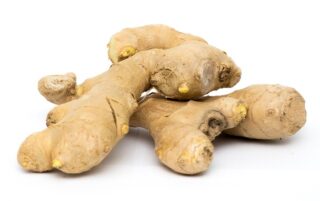
Ginger is another great option for boosting your immunity. Ginger is a natural anti-inflammatory and can help to reduce congestion. It can also help to soothe a sore throat. You can find ginger in the form of capsules, tea, or syrup.
Garlic for immunity
Garlic is another excellent food for boosting your immunity. Garlic is rich in Vitamin C, sulfur, and antioxidants. It has been shown to fight infection and reduce inflammation. You can add garlic to your food or take it in supplement form.
Selenium for immunity
Selenium is a trace mineral that is important for immunity. Selenium helps the body to produce antibodies, which fight infection. It can be found in Brazil nuts, tuna, shrimp, and eggs.
Selenium can also be added to an intravenous infusion for an added immune boost.
Vitamin A for immunity
Vitamin A is an important nutrient for immunity. Vitamin A helps the body to produce white blood cells, which fight infection. Vitamin A can be found in sweet potatoes, carrots, dark leafy greens, and squash.
Probiotics for immunity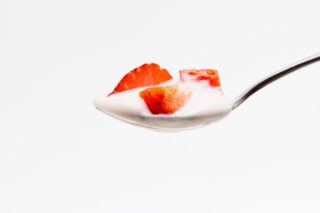
Probiotics are live bacteria that are good for your gut health. Probiotics help to keep the balance of good and bad bacteria in your gut. This can help to improve digestion and boost immunity. You can find probiotics in yogurt, kimchi, sauerkraut, and kombucha.Probiotic supplements are also available.
There you have it! These are just a few of the best ways to boost your immunity naturally. By including these foods and supplements in your diet, you can help to keep yourself healthy and avoid getting sick. In individuals requiring an extra boost, injection and intravenous treatments are available and effective. Do you have any other favourite natural immunity boosters? Share them with us in the comments
What is Long Covid?
Long Covid is defined as symptoms that present 12 weeks after infection and that persist for at least 8 weeks. The most common symptoms being: Fatigue, Shortness of Breath and Cognitive Dysfunction. There will be an estimated 150 million cases of Long Covid cases worldwide as of 2022. Long Covid has the potential to significantly impact the lives of a large portion of the population making day to day activities difficult or near impossible. Although there are ways to reduce the risk factors in developing long covid, there aren’t many proven conventional medications to treat Long Covid once symptoms set in.
We now know that viral fragments, lingering spike protein and persistent inflammation are all likely features of Long Covid. This chronic state of immune activation leads to heart and blood vessel abnormalities, lung impairment, neurological injury and autoimmunity. Luckily, functional medicine practitioners have been at the forefront in developing protocols that work to resolve the aftermath of COVID-19 infection.
Mitochondrial Dysfunction
There is evidence of mitochondrial dysfunction in Long Covid cases as seen through disruption in fatty acid oxidation and altered lactate production. This would also partially explain the chronic fatigue of Long Covid. Functional medicine has a long history of developing protocols to address mitochondrial dysfunction. Many of the compounds used have been showing promise in treating Long Covid. For example, there is evidence of reduced levels of Coenzyme Q10 in COVID-19 infection. CoQ10 is an important compound in mitochondrial function and energy production. Supplementing with this compound along with other mitochondrial supportive nutrients (Niacin, N-Acetyl Cysteine, Alpha Lipoic Acid) have been helpful in treating Long COVID associated fatigue.
Chronic Inflammation
We also know that there is a wealth of data to suggest high levels of inflammatory markers in Long Covid sufferers. Conventionally, steroids such as prednisone have been used to effectively treat Long Covid symptoms. However, steroids can not be used indefinitely as there are significant side effects associated with long term usage. In Naturopathic and Functional Medicine we have evidence of a number of naturally derived compounds that work to treat Long Covid associated inflammation including: Curcumin, Resveratrol, Cannabinoids, Luteolin, Omega 3, and Black Cumin.
Immune System Abnormalities
We also know that there is immune system dysfunction in Long Covid as evidenced in abnormal T-cell behaviour. One of the most important compounds regulating immune function is vitamin D. There is strong evidence that having adequate vitamin D status prior to Covid infection is protective toward Long Covid and giving large doses of vitamin D to both active Covid-19 cases and Long Covid sufferers can be therapeutic.
Gastrointestinal Symptoms
Long Covid cases also seem to have a higher incidence of prolonged gastrointestinal symptoms and intestinal dysbiosis with organisms that increase inflammation. One of the best ways to treat intestinal inflammation is by promoting the growth of intestinal organisms that produce the short chain fatty acid Butyrate. Food that is high in fibre typically help to promote beneficial species of intestinal organisms. Oats, Apples, Onions, Asparagus, Broccoli, Whole grains, underripe bananas, Legumes, and Berries are some excellent foods shown to promote butyrate production.
Cannabinoids
Cannabinoids, and more specifically cannabidiol (CBD) has been shown to have some interesting mechanisms in the treatment of Long Covid. Strains of cannabis containing high levels of CBD have been shown to block spike protein from entering the cell (via ACE-2 receptors), modulate ACE-2 receptor density on cell surfaces (less doors of COVID to enter) and reduce inflammation. Therefore cannabinoids are very exciting compounds currently being investigated for use in Long Covid therapy.
Conclusions
Long Covid is a multifaceted chronic disease with effects on various physiological systems. Drugs with a narrow therapeutic scope are not going to be as effective as complex compounds that effect multiple physiological processes at the same time. This type of therapeutic synergy is a hallmark of naturally derived medicines and therefore functional medicine is going to play a pivotal role in dealing with this prevalent and highly complex disease state. In my Toronto practice I have had several cases of long covid that only began to resolve once a functional medicine protocol was put into place. So if you know someone who is suffering from Long Covid I recommend connecting them with a local Naturopathic Doctor or Functional Medicine Practitioner.
Intro
Our world is facing an epidemic of Long COVID over the next decade. Assuming at least 10% of COVID-19 survivors develop long COVID, which is likely underestimated, it is estimated that 5 million people are facing long COVID globally. Long COVID affects multiple systems in the body and therefore requires a multidisciplinary approach. It is a shared opinion amongst several specialists that a functional medicine approach will be needed to rehab these patients back to health. While we are still in the beginning stages of understanding this chronic disease, there are some emerging ideas on how to treat Long COVID as well as some nutritional supplements that may offer a complete or partial solution.
Defining Long Covid
The now accepted technical name for Long Covid is Post Acute Sequelae of CO-V-2 (PASC). While a widely accepted definition is lacking, there seems to be some consensus on the approximate timing of symptoms and the type of symptoms common to a diagnosis of PASC. Onset is typically anywhere from 2-8 weeks after a confirmed or suspected COVID-19 infection and may persist up to 6-months or more. Common symptoms include: fatigue, dyspnoea (shortness of breath), cognitive dysfunction, headache, myalgia, chest pain, joint pain, smell and taste dysfunction, cough, hair loss, insomnia, wheezing, rhinorrhea, autonomic dysfunction (POTS), cardiac and gastrointestinal issues.
Risk Factors
Some of the clearly defined risk factors for developing long COVID include: More than 5 initial symptoms, initial disease severity, female sex, pre-existing comorbidity, prior psychiatric disorder, and old age. There are also certain biomarkers in blood samples that appear to have a correlation with Long COVID including: Increased levels of D-dimer, CRP, IL6, procalcitonin, troponin-1, BUN, neutrophils and decreased levels of lymphocytes.
Pathophysiology
Although the exact mechanisms behind what causes PASC in not completely understood recent research has pointed towards a few mechanisms. For some Long Covid sufferers there seems to be evidence of long term tissue damage in the cardiovascular, pulmonary and neurological systems. There is also prevalence of unresolved inflammation, viral persistence, gut dysbiosis and autoimmunity.
Treatments
The obvious question that everyone would like know is if there are treatment interventions to both prevent and alleviate the symptoms of PASC. The most conventionally accepted treatments thus far are: Personalized rehabilitation programs (light aerobic and breathing exercises), analgesics, antidepressants, ivabradine (for POTS like symptoms) and antihistamines. It is also accepted that treatment to regulate immune and mitochondrial function would be useful. This is perhaps where naturopathic and functional medicine can make an enormous impact.
There is emerging research looking into nutraceutical compounds to help prevent and treat PASC, here is an overview:
Mitochondrial Support: The mitochondria is an energy producing organelle within every cell of our body. In high school science we are taught that the mitochondria is the “power plant of the cell”. Disruptions in mitochondrial function can lead to fatigue, muscle pain, headache and immune dysfunction. COVID-19 infections seems to disrupt mitochondrial function through mechanisms still being investigated but include oxidative stress and alterations in genetic mutation.
Co-factor nutrients that help support mitochondrial function are being investigated for use in treating COVID-19 infection and PASC. These nutrients include: L-Carnitine, Alpha lipoic acid and Coenzyme Q10. A CoQ10 deficiency has been reported in COVID-19 patients and therefore supplementation with this particular compound is of great interest amongst researchers.
Inflammation: Inflammation seems to be driving a lot of the symptomatology in PASC. Inflammatory compounds have been identified in multiple organ systems including the brain, lungs, pancreas and heart. As such one natural anti-inflammatory compound has been identified as being a possible adjuvant therapy in both COVID-19 infection and PASC.
Curcumin is a compound derived from Turmeric and has anti-inflammatory, anti-viral, anticoagulant, anti-platelet and cytoprotective properties. There has been some evidence to suggest that 1000mg of a turmeric supplement restored smell and taste in individuals who lost these senses following COVID-19 infection. Furthermore in vitro studies have demonstrated that curcumin can inhibit coronavirus from entering the cell, and can disrupt some of the signing processes of the virus.
Immune System: Many of the complications of COVID-19 can be attributed to a dysfunctional response of the immune system, either over-reactive or under-reactive. Many compounds that have a direct and indirect role in proper immune system activity are showing promise in treating COVID-19 infection and PASC.
Vitamin D acts as an immune activity regulator, helping to both increase and decrease immune activity as is appropriate to the situation. Some studies have demonstrated that vitamin D supplementation after COVID-19 infection is associated with less ICU admissions and decrease mortality. Another study demonstrated that a combination of vitamin D, selenium and zinc was able to mitigate the course of respiratory complications with COVID-19 infection. It is likely that co-factors and nutrients which help support normal immune activity can shorten the duration of PASC and alleviate symptoms.
Gastrointestinal: Symptoms affecting the gastrointestinal tract are both common in COVID-19 infection and PASC. There is evidence that COVID-19 and its associated spike protein can persist in the gastrointestinal tract for months after confirmed infection.
Autoimmune type syndromes are commonly seen with PASC. One hypothesis for this outcome is a type of molecular mimicry between spike protein and healthy tissue. Spike protein can enter through a compromised digestive tract into the blood stream. Once in the blood stream the immune system can create auto-antibodies in response.
Maintaining a healthy gut/body barrier is emerging as a possible area of treatment in COVID-19 infection and PASC. A healthy environment of commensal bacteria strengthens the gut/body barrier as well as driving the production of healing compounds such as butyrate.
Butyrate is a short chain fatty acid that is produced by beneficial bacteria in our gastrointestinal tract. Butyrate can cross the blood brain barrier and influence regeneration of damaged nerve cells. Probiotic strains belonging to the Lactobacillus and Bifidobactrium categories are
essential for Butyrate production. While probiotic supplementation can assist in developing a healthy gut environment most of the benefit comes from eating foods which help these probiotics thrive. A diet rich in fibre and polyphenols is therefore essential in influencing the growth of beneficial butyrate producing probiotics. Fruit, veggies, and polyphenols like curcumin, luteolin and resveratrol are likely an important part of what will be a holistic approach to treating PASC.
Conclusions: The COVID-19 virus has turned out to be a multifaceted disrupter of homeostasis in a large percentage of those who have been infected. A functional medicine approach to treatment is likely going to have the most profound impact in addressing PASC. We are already starting to see some natural compounds (L-Carnitine, Alpha Lipoic Acid, Coenzyme Q10, Curcumin, Vitamin D, Selenium Zinc and probiotics) having an impact of this ill defined syndrome. More properly funded research in the area of nutraceuticals and functional medicine for treatment of PASC is much needed. In the meantime Naturopathic Doctors and Functional Medicine Physicians have many tools to start treating PASC with safe and effective protocols.
References
Rattis BAC, Ramos SG, Celes MRN. Curcumin as a Potential Treatment for COVID-19. Front Pharmacol. 2021 May 7;12:675287. doi: 10.3389/fphar.2021.675287. PMID: 34025433; PMCID: PMC8138567.
Zahedipour F, Hosseini SA, Sathyapalan T, Majeed M, Jamialahmadi T, Al-Rasadi K, Banach M, Sahebkar A. Potential effects of curcumin in the treatment of COVID-19 infection. Phytother Res. 2020 Nov;34(11):2911-2920. doi: 10.1002/ptr.6738. Epub 2020 Jun 23. PMID: 32430996; PMCID: PMC7276879.
Chabot AB, Huntwork MP. Turmeric as a Possible Treatment for COVID-19-Induced Anosmia and Ageusia. Cureus. 2021 Sep 8;13(9):e17829. doi: 10.7759/cureus.17829. PMID: 34660038; PMCID: PMC8502749.
Alexander J, Tinkov A, Strand TA, Alehagen U, Skalny A, Aaseth J. Early Nutritional Interventions with Zinc, Selenium and Vitamin D for Raising Anti-Viral Resistance Against Progressive COVID-19. Nutrients. 2020 Aug 7;12(8):2358. doi: 10.3390/nu12082358. PMID: 32784601; PMCID: PMC7468884.
Pal R, Banerjee M, Bhadada SK, Shetty AJ, Singh B, Vyas A. Vitamin D supplementation and clinical outcomes in COVID-19: a systematic review and meta-analysis. J Endocrinol Invest. 2022 Jan;45(1):53-68. doi: 10.1007/s40618-021-01614-4. Epub 2021 Jun 24. PMID: 34165766; PMCID: PMC8223190.
Ouyang L, Gong J. Mitochondrial-targeted ubiquinone: A potential treatment for COVID-19. Med Hypotheses. 2020 Nov;144:110161. doi: 10.1016/j.mehy.2020.110161. Epub 2020 Aug 5. PMID: 32795832; PMCID: PMC7403158.
Theoharides TC, Cholevas C, Polyzoidis K, Politis A. Long-COVID syndrome-associated brain fog and chemofog: Luteolin to the rescue. Biofactors. 2021 Mar;47(2):232-241. doi: 10.1002/biof.1726. Epub 2021 Apr 12. PMID: 33847020; PMCID: PMC8250989.
Crook H, Raza S, Nowell J, Young M, Edison P. Long covid-mechanisms, risk factors, and management. BMJ. 2021 Jul 26;374:n1648. doi: 10.1136/bmj.n1648. Erratum in: BMJ. 2021 Aug 3;374:n1944. PMID: 34312178.
Mercola J, Grant WB, Wagner CL. Evidence Regarding Vitamin D and Risk of COVID-19 and Its Severity. Nutrients. 2020 Oct 31;12(11):3361. doi: 10.3390/nu12113361. PMID: 33142828; PMCID: PMC7692080.
Yong SJ. Long COVID or post-COVID-19 syndrome: putative pathophysiology, risk factors, and treatments. Infect Dis (Lond). 2021 Oct;53(10):737-754. doi: 10.1080/23744235.2021.1924397. Epub 2021 May 22. PMID: 34024217; PMCID: PMC8146298.

